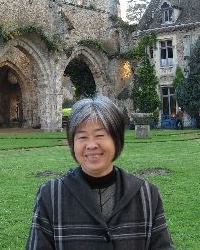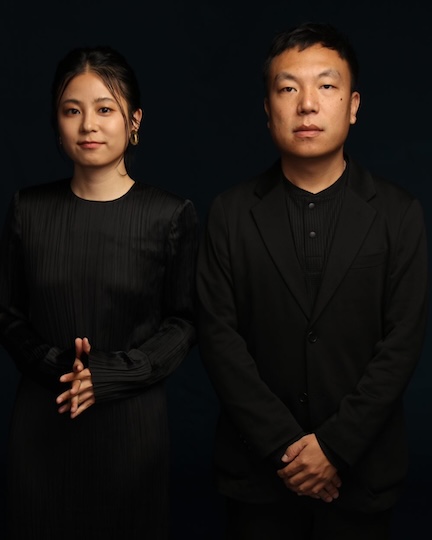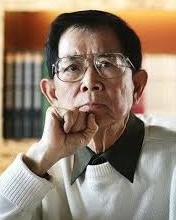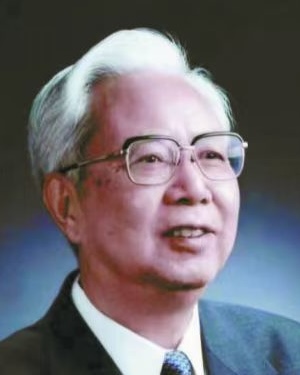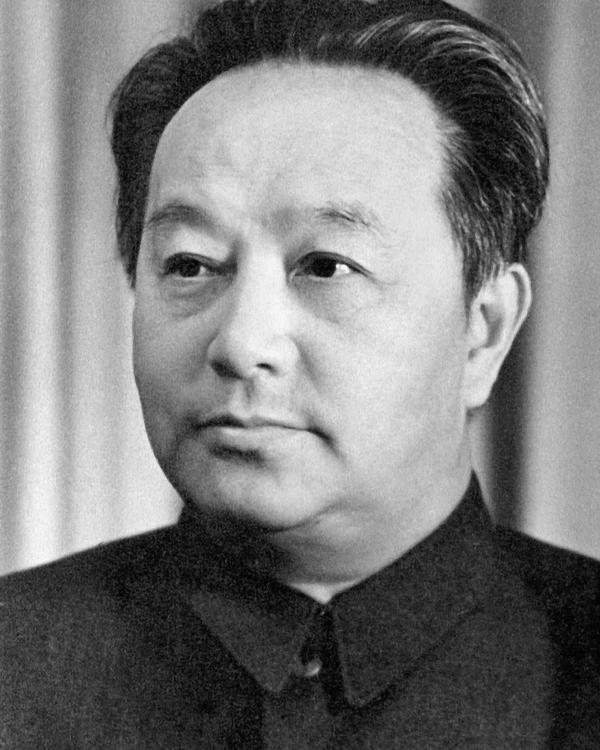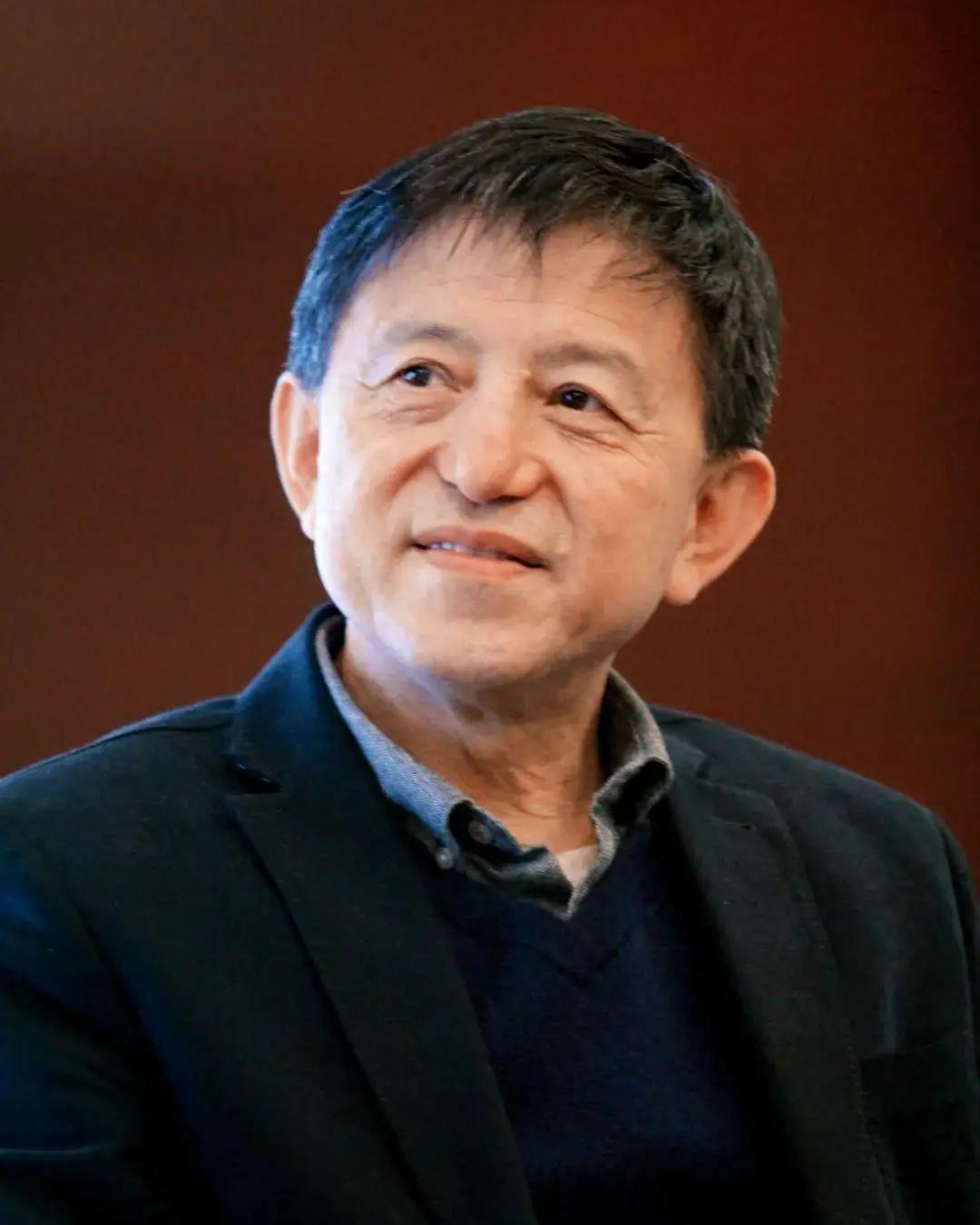
Zhao Dingxin
Zhao Dingxin (1953- ) is a sociologist. He received his undergraduate degree in biology from Fudan University in 1982, and later received his Master and Ph.D. degrees in Insect Ecology from the Chinese Academy of Sciences and McGill University in Canada, respectively. He then switched to sociology and received his Ph.D. in sociology from McGill University in 1995, and taught in the Department of Sociology at the University of Chicago from 1996 to 2021, where he served as assistant professor, associate professor, professor, and Max Palevsky professor emeritus. In 2012, Zhao joined the School of Public Administration at Zhejiang University, where he served as visiting professor, professor, Dean of the Department of Sociology, and Director of the Institute for Advanced Study in Humanities and Social Sciences. In March 2024, Zhao resigned from all positions related to the Department of Sociology.
Zhao Dingxin's research interests include political sociology, social movements, and historical sociology, and he is the author of *Social and Political Movements* and *The Power of Tiananmen: State - Society Relations and the 1989 Beijing Student Movement*.

Li Zhisui
Li Zhisui (December 30, 1919 - February 13, 1995) was a physician and Mao Zedong's personal doctor. Li was born into a family of doctors; his great-grandfather was an imperial physician during the Tongzhi period of the Qing Dynasty, and his father was a Kuomintang official. Li received his M.D. in 1945 and worked as a military doctor for the Kuomintang and as a ship's doctor in Australia before serving as a doctor in 1951 at the medical clinic of the Central Security Bureau in Zhongnanhai, the organization responsible for overseeing protection for and conducting surveillance on senior CCP and PLA leaders. According to his own account, Li served as Mao's personal physician from 1954-1976. He was the first director of the People's Liberation Army No. 305 Hospital from 1970-1979. In 1980, Li became vice president of the Chinese Medical Association and the Chinese Geriatrics Society, as well as editor-in-chief of the Chinese Medical Journal and the Chinese editions of The American Journal of Medicine. In 1988, Li moved to the United States. In 1994, he published a memoir entitled The Private Life of Chairman Mao, based on his recollection of journals he had kept and destroyed during the Cultural Revolution. On February 13, 1995, Li died of a heart attack at his home in a suburb of Chicago.
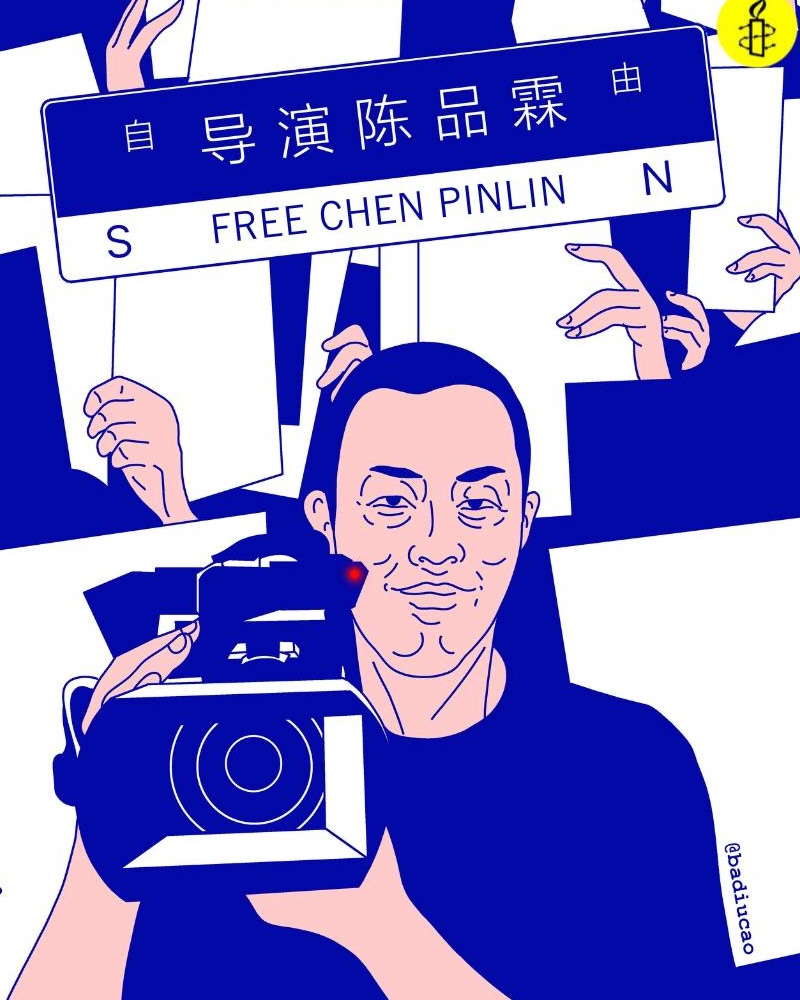
Chen Pinlin
Chen Pinlin, online alias “Plato”, was born on August 8, 1991, in Xiapu County, Fujian Province. He resided in Shanghai, and is the director of the documentary “Not the Foreign Force” about the White Paper Movement in Shanghai.
During the three years of the "zero-COVID" policy enforced by Xi Jinping's government, the daily life and freedoms of the people were severely limited. A fire in Urumqi, Xinjiang, finally ignited public dissatisfaction with the measures. On November 26, 2022, when the people of Shanghai spontaneously gathered in the streets to mourn the victims of the fire, no one expected that this memorial activity would lead to nationwide protests against the pandemic policies. At the scene, Chen Pinlin and his girlfriend, Wang, filmed many protest videos at the protest site on Urumqi Middle Road in Shanghai.
Chen Pinlin felt it was necessary to leave a historical record of the movement. He wrote a script, edited it, and produced it into the documentary “Urumqi Middle Road”. The English title of the film is <i>NOT THE FOREIGN FORCE</i>.
In November 2023, on the anniversary of the White Paper Movement, Chen Pinlin uploaded the documentary to YouTube and other social media platforms, garnering hundreds of thousands of views. Less than a week later, he and his girlfriend were arrested. His girlfriend was released on bail, while Chen Pinlin remained in custody.
On January 5, 2024, Chen Pinlin was formally arrested on suspicion of "picking quarrels and provoking trouble" and detained at Baoshan District Detention Center in Shanghai.
On September 26, 2024, lawyers met with Chen Pinlin and learned that he had to sleep on his side in the detention center, only allowed one hour of outdoor exercise a month, and his legal rights were not properly protected.
According to a report by the Rights Defense Network on January 7, 2025, Chen Pinlin’s first trial was held at 1:45 p.m. on January 6, 2025, in the Third Court of Baoshan District Court, where he was sentenced to 3 years and 6 months in prison. His sentence will end on May 27, 2027.
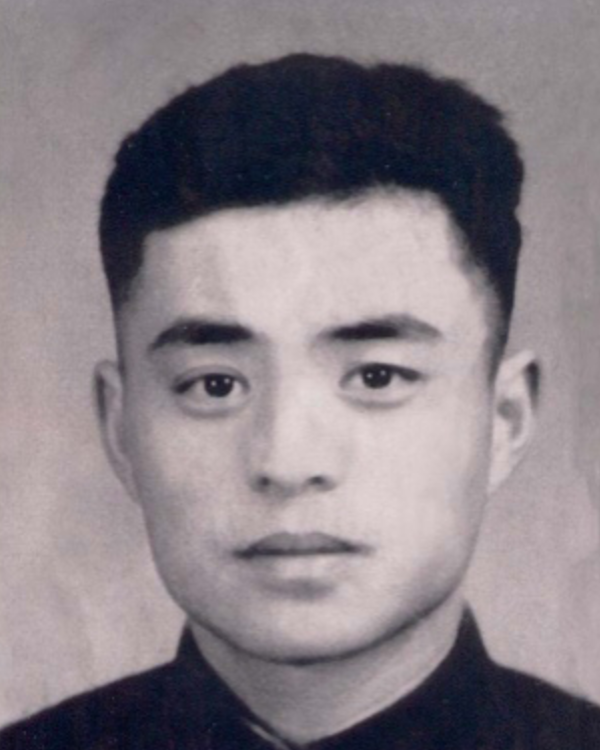
Zhang Chunyuan
Zhang Chunyuan (1932-1970), a native of Shangcai, Henan Province, was a writer, editor, and political prisoner.
Zhang grew up in an impoverished family. His mother died when he was 7 and he told friends that his stepmother mistreated him. He ran away from home at age 13 and worked as an apprentice car mechanic before joining the People’s Liberation Army in 1948 as a 16-year-old. He volunteered for the Korean war in 1950 and served as a car driver and technician in the Fourth Field Army’s 50th Army Logistics Department.
He went abroad to fight in the Korean War in 1950 and was wounded in 1953 on the battlefield while rescuing a vehicle. He was discharged in 1954, returned to China in 1955 and worked in the Department of Agriculture of Hubei Province.
In 1956, he was admitted to Lanzhou University. That began his disillusionment with how the Communists were running China. He thought a university would have a magnificent library but found that most books were under lock and key. Lanzhou University didn’t even possess a complete set of the Confucian classics—the basic texts used over the centuries by all literate people—let alone cutting-edge journals. Teaching was worse, with one lecturer for 100 students. When the Hundred Flowers Campaign began, Zhang criticized the lack of books and poor teaching.
For that, he was labeled a Rightist in 1958 and exiled to Tianshui, Gansu Province for re-education through labor. There, he and others students from Lanzhou University, including his girlfriend Tan Chanxue, Xiang Chengjian, Miao Qingjiu, and Gu Yan witnessed the Great Famine first-hand, including cannibalism.
Inspired by the poet Lin Zhao, they decided to publish a magazine. Zhang traveled to Suzhou to meet Lin, and convinced her to let them published “Seagull” and “A Day in the Life of Prometheus.”
Back in Tianshui, he and the other exiled students obtained a mimeograph machine, carved their own wax plates, and published the magazine Spark, which explored the reasons for the Great Famine and commented on current affairs.
Zhang was widely regarded by the students as one of the leaders of the magazine and also wrote several key articles. He was arrested on September 30, 1960, along with other students and dozens of local farmers who knew and supported them. In order to escape, Zhang refused to eat and was sent to a hospital for prisoners in July 1961. On August 10 he managed to escape but was arrested again on September 6 and sentenced to life imprisonment in January 1965 for “organizing a counter-revolutionary group”.
In March 1970, Zhang Chunyuan was again sentenced for engaging in counter-revolutionary activities by exchanging letters with another prisoner, Du Yinghua, a local party leader who had sympathized with the students. The two were sentenced during a mass rally at Qilihe Stadium and executed at Willow Gulley in Donggang Township on March 22.
For the three days before his execution, Zhang recounted his life story to a fellow prisoner named Wang Zhongyi and made him promise to find Tan Chanxue and tell her two sentences:
<i>First, I have a clear conscience toward the party, the country, and the people, and I’m sorry because I can’t accompany her to finish the road of life. Second, she must live well; the future is bright and boundless!</i>
Zhang was rehabilitated in 1981.

Dai Xiangqing
Dai Xiangqing (1928-1994), a native of Shulan County, Jilin Province, took part in the Chinese Civil War in 1946, worked in Jiangxi as part of the Fourth Field Army of the People's Liberation Army in 1949, and graduated from the CCP party school in 1965. Dai worked at the Jiangxi Provincial Party School, serving as the director of its Party Building and Party History Teaching and Research Office, the director of education and vice president, and was promoted to professorship in 1986. Dai edited and co-authored a number of books on party history, including <i>History of the Central Revolutionary Base and A Complete History</i> of the <i>AB Corps and the Futian Incident</i>.
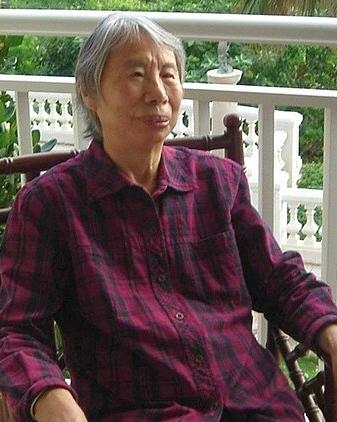
Wang Linyun
Wang Lingyun (1935–2021) was a historian and a researcher at the National Museum of China, as well as the mother of Wang Dan, a student leader of the Tiananmen Square protests.
Wang Lingyun was born in Zhao Wang Li Village, Heze County, Shandong Province. Her father, Wang Yongrui, was a university-educated history teacher who taught in several schools. In 1955, Wang Lingyun entered the History Department of Peking University, graduating in 1961. Afterward, she was assigned to the China Revolutionary Museum (now the National Museum of China), where she worked on the study of modern Chinese history and the history of the Chinese Communist Party.
During the Cultural Revolution, she and her husband, Wang Xianchen, were sent to the "May Seventh Cadre School" in Jiangxi Province, where they, along with their children, performed manual labor and underwent ideological criticism.
Wang Lingyun participated in numerous academic and editorial projects at the National Museum of China. She authored works such as <i>The Biography of Guan Xiangying </i>and <i>Walking Through That Era</i> and wrote several academic papers, including "Qu Qiubai and the Factional Dispute at Moscow's Sun Yat-sen University, " "Qu Qiubai and Shanghai University: On Qu Qiubai's Educational Thought," and "Education Reforms in the Nanjing Provisional Government." She also co-edited <i>The Collected Works of Qu Qiubai</i> with Ding Shouhe and contributed to the editing of the 32-volume <i>Chinese Cultural Relics Atlas</i> compiled by the State Administration of Cultural Heritage.
In 1989, Wang Lingyun's son, Wang Dan, became involved in the student protests at Tiananmen Square and was the first student leader to be wanted after the June Fourth Incident. After the events, Wang Lingyun’s family faced immense pressure. Wang Dan was arrested and detained, and Wang Lingyun was also held at the Beijing Public Security Bureau detention center for more than fifty days. During this time, her health was severely affected, resulting in atrophy of her left calf muscles. Authorities never provided an explanation for her detention.
Wang Lingyun continued to advocate for her son's freedom and health. After Wang Dan's arrest, she participated in the drafting of a petition titled "Welcoming the United Nations Year of Tolerance, Calling for Domestic Tolerance," which called on the Chinese government to reassess the June Fourth Incident and release individuals detained for their ideological beliefs. Wang Lingyun and her husband consistently visited Wang Dan in prison every month, even amid rumors that he might be sent for labor reform in Xinjiang. Wang Lingyun firmly stated, "No matter how far you send my son, I will crawl there every month to see him." <a href=”https://www.facebook.com/wangdan1989/posts/%E8%87%B4%E8%A6%AA%E6%9C%8B%E5%A5%BD%E5%8”>Wang Dan later recalled</a>, "Without my mother's and family's support, I could never have endured the long years of imprisonment."
In 1998, Wang Lingyun and her husband wrote to President Jiang Zemin, requesting that Wang Dan be allowed to receive medical treatment outside of prison. After efforts spanning some time, Wang Dan was allowed to go to the United States for treatment and regained his legal freedom in 2007. However, Wang Dan was never able to return to China and reunite with his family. Wang Dan later shared, "My mother's greatest wish was for me to return to our Beijing home and stay by her side, but in the end, she was not able to wait for that day." After her passing, Wang Dan expressed with deep sorrow, "Without me, her life would have been much smoother and peaceful."
Wang Lingyun passed away on December 28, 2021, due to a sudden brain hemorrhage, at the age of 86. Upon hearing of her death, Wang Dan wrote, "My mother is gone, and the pillar of my spiritual world has collapsed. This world will forever be missing a corner." During her funeral, since Wang Dan could not return to China, he stated that he would "never drink alcohol again, in memory of her." He also announced the establishment of the "Wang Lingyun Humanitarian Relief Fund" to help families of political prisoners who had endured similar suffering, fulfilling his mother's unfinished wish.
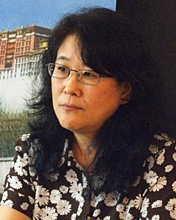
Li Jianglin
Li Jianglin (March 23, 1956 - December 24, 2024), a native of Nanchang, Jiangxi Province, is a writer and historian. Born into a red family, her parents worked for the Fourth Field Army of the Chinese People's Liberation Army, and became senior cadres after the founding of PRC. During the Cultural Revolution, Li's father was labeled a capitalist and exiled to a labor camp, and she was forced to separate herself from him and follow her mother to live in the countryside.
Li received her bachelor's degree in English from Fudan University in 1982, her master's degree from the Institute of American Literature at Shandong University in 1988. In the same year, she went to study in the United States, earning a master's degree in Jewish history from Brandeis University and a master's degree in librarianship from Queens College in New York. During her time in New York, she organized many cultural activities at the library in Flushing, making it a community hub for overseas Chinese. Li Jianglin was also the deputy secretary general of Independent Chinese PEN and a faculty member of Tiananmen University for Democracy.
She began to conduct independent research on Tibet in 2004, traveling many times to India and Nepal to interview the Dalai Lama and Tibetans in exile, and published many articles in <i>Ming Pao Monthly, Open Magazine</i>, and <i>Chinese Human Rights Biweekly</i>, among other magazines. She also wrote several books about Tibet, including <i>Tibet in Agony: Lhasa 1959</i> and <i>When the Iron Bird Flies: China's Secret War in Tibet</i>. She also ran a <a href="https://bloodundersnow.blogspot.com/p/blog-page_9488.html">Chinese-language blog “Tibet: An Alternative Reality,”</a> which contains more research materials on Tibet as well as articles by Li Jianglin.
On the Christmas Eve of 2024, Li passed away due to illness in her home in Georgia, United States.
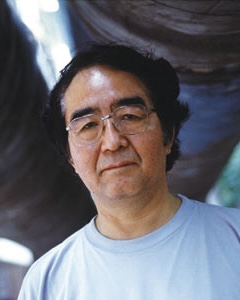
Yang Xianhui
Yang Xianhui (1946—), writer. Yang was born in Lanzhou, Gansu Province. In 1965, during high school, Yang went to work in the countryside as a sent-down youth. In 1971, he was admitted to the Department of Mathematics of Gansu Normal University as a worker-peasant-soldier student. After graduation, he worked as a middle school teacher in Gansu, and later in Hebei as a party committee secretary and a communication officer at a local salt farm. In 1988 he joined the Tianjin Writers' Association to work full-time as a writer.
His historical novels such as <i>Chronicle of Jiabiangou</i> and <i>Chronicle of the Dingxi Orphanage</i> portray life during the Anti-Rightist Campaign and the Great Famine, and are constructed from interviews with a great number of survivors and recollections of his own time as a sent-down youth. The two books have drawn comparisons to Solzhenitsyn's <i>Gulag Archipelago</i>, which chronicled Soviet labor camps.
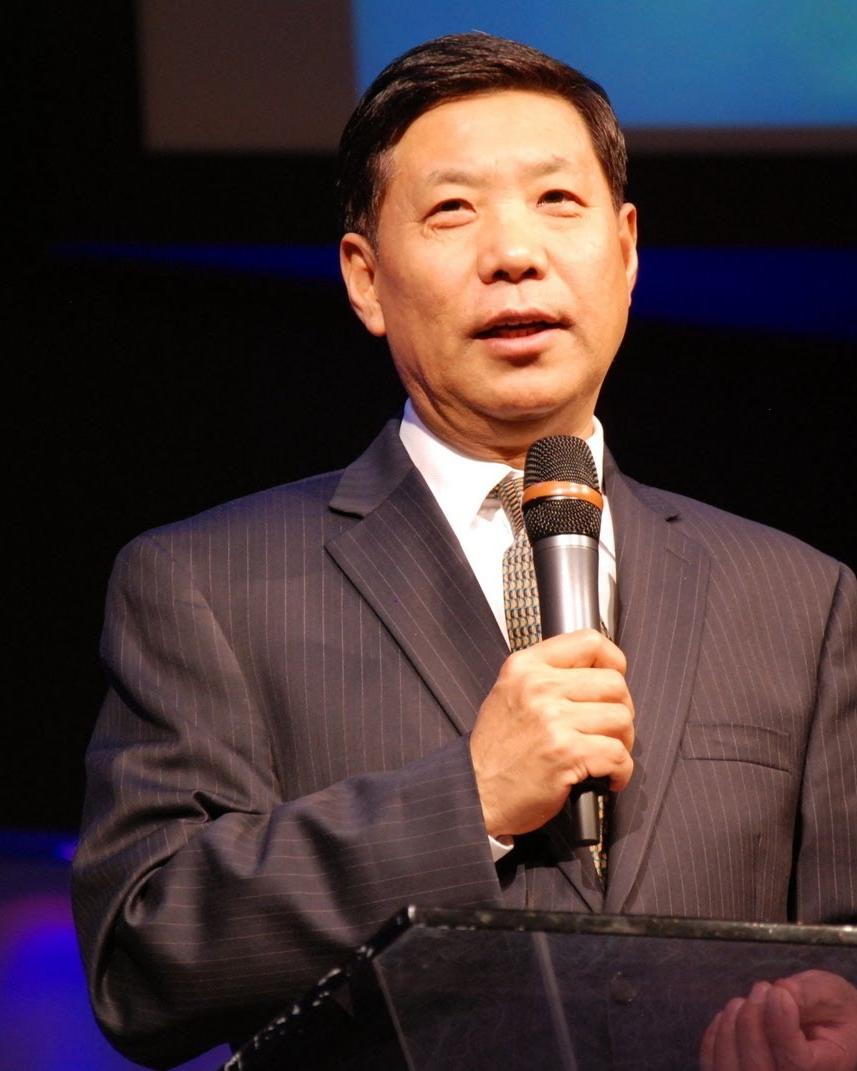
Zhang Boli
Zhang Boli (born 1957), originally from Wangkui County, Heilongjiang Province, China, is a Christian pastor and a student leader of the 1989 Democracy Movement. He was once a student in the Writer’s Class at Peking University and played an important role in the 1989 Tiananmen Square pro-democracy movement.
Zhang Boli attended primary and secondary school in Wangkui County, Heilongjiang Province. He later studied at Suihua Teachers College and Suzhou Railway Teachers College and worked as a journalist for the Railway Engineering Newspaper, where he wrote several reportorial literary works, such as The Success Story, Ha Mu Ha Mu, and The Road to the Sea. In 1988, he was admitted to Peking University’s Chinese Department Writer’s Class, where he studied under Cao Wenxuan and Qian Liqun. On April 15, 1989, he posted his first poem mourning Hu Yaobang, Longing for You: Rainy Night to Bid Farewell to Yaobang, on a bulletin board in the university’s triangle area. He, along with Wang Dan and others, organized the first student memorial march for Hu Yaobang at Peking University and participated in drafting the Seven Petition Clauses.
During the hunger strike at Tiananmen Square, Zhang Boli served as the deputy commander and the head of publicity for the Tiananmen student hunger strike group. One hour before the martial law declaration, he announced the end of the hunger strike and called for a sit-in protest. During the later stages of the Tiananmen protests, Zhang Boli served as the deputy commander of the temporary Tiananmen Command Center and the head of Tiananmen Democracy University. After the June 4th crackdown, he was listed as a wanted fugitive and escaped to the Sino-Soviet border in Heilongjiang Province, where he was sheltered by a local Christian. Later, he attempted to escape to the Soviet Union but was refused and sent back to China. He again hid in the wilderness of Heilongjiang, during which time his wife left him. Zhang Boli was the only June 4th wanted fugitive to successfully remain hidden within China for two years without being captured by the government.
In June 1991, Zhang Boli secretly escaped to Hong Kong and applied for political asylum at the U.S. Consulate in Hong Kong. His application was approved, and he was granted asylum in the United States. In July 1991, he was invited to Princeton University’s East Asian Department as a visiting scholar and became a researcher at the Princeton Chinese Studies Society. Due to kidney failure, he received treatment in the U.S. and later transferred to Taiwan’s Veterans General Hospital. During this period, he converted to Christianity and published his memoir <i>The Fugitive</i>, which has been translated into multiple languages.
In 1993, Zhang Boli participated in the overseas democracy movement conference in Washington, D.C., where he was elected as vice president of the Democratic China United Front and served as the editor-in-chief of China Spring magazine. In 1995, he began studying theology at Wheaton College, having decided to dedicate his life to the ministry. In 1997, he enrolled at Logos Evangelical Seminary in Los Angeles, where he earned a Master of Divinity degree and became a researcher at the China Evangelical Association, studying under Dr. Zhao Tian'en.
In 2001, Zhang Boli was ordained as a Christian pastor and in 2002, he founded and pastored the Harvest China Christian Church in the Washington, D.C., area. He later expanded the church to Singapore, New York, Philadelphia, Los Angeles, and Sydney. In 2018, he earned a Doctor of Ministry degree from Lincoln Christian University in the United States.
Zhang Boli also founded the China Evangelism Mission and the China Evangelical Seminary, which has produced over 300 graduates serving churches around the world. He is currently the senior pastor of the Harvest China Christian Church in the United States, the president of the North American China Evangelism Mission, and the dean of the China Evangelical Seminary in the U.S.
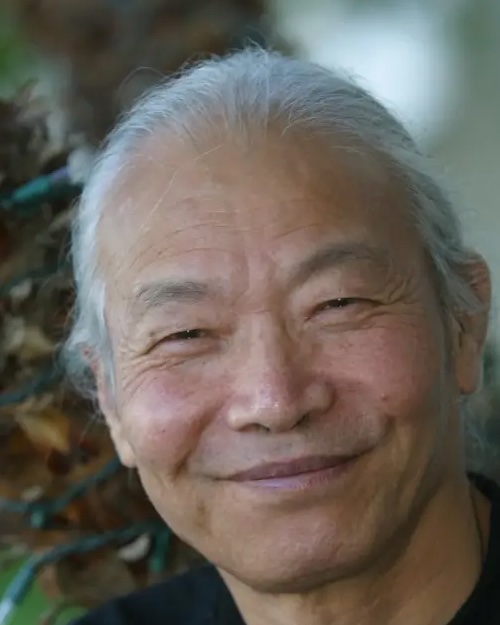
Gao Ertai
Gao Ertai (b. October 15, 1935), a native of Gaochun, Jiangsu Province, is a painter, writer, aesthetician, and philosopher. He graduated from Jiangsu Normal College in 1955, and was assigned to a middle school in Lanzhou, Gansu Province, where he worked as an art teacher. He was labeled a Rightist in 1957 for his thesis "On Beauty," which argued that beauty was subjective and up to individual free will to determine–a position that ran contrary to Communist Party orthodoxy, which says that beauty is an objective fact that is determined by the artist's political attitude.
Gao was then dismissed from his job and was exiled to the Jiabiangou labor camp in Jiuquan, Gansu Province, for re-education through labor. His father was also persecuted and died during the Anti-Rightist Campaign. In 1959, he was sent to Lanzhou to create a propaganda painting for the Gansu Provincial Museum, and escaped having to spend the Great Famine in Jiabiangou, where most inmates died of starvation. In the spring of 1962, he was released from re-education through labor and went to work at the Research Institute on Dunhuang Cultural Relics. When the Cultural Revolution broke out in 1966, he was persecuted for his writings on philosophy and art during his time at Dunhuang, and was put to work in the “cowshed” (a makeshift prison for intellectuals who were labeled class enemies) on the site of the Institute. His wife was implicated and exiled to work in a rural area, and died of illness there. From 1972 to1976, he was sent to the May Seventh Cadre School in Jiuquan for re-education through labor again. After his rehabilitation in 1977, he taught at Lanzhou University, and later worked at the Institute of Philosophy of the Chinese Academy of Social Sciences, Sichuan Normal University, Nankai University, and Nanjing University.
In 1987, he was persecuted during the Anti-Bourgeois Liberalization Movement; his daughter was disqualified from admission to a university. She was later diagnosed with schizophrenia, and died a few years later. In 1989, following the Tiananmen uprising, Gao Ertai was arrested at Nanjing University for incitement of counter-revolutionary propaganda. He was released in 1990 but continued to be persecuted. He left Chengdu for Hong Kong on July 11, 1992 through “Operation Yellowbird" (a Hong Kong-based operation following Tiananmen to help Chinese dissidents escape arrest by facilitating their departure overseas via Hong Kong). He arrived in the United States in 1993. He lived in New Jersey and now lives in Las Vegas.
As an independent intellectual, Gao Ertai promotes the pursuit of human emancipation, respect for human dignity and freedom, and questions the legitimacy of the one-party rule.
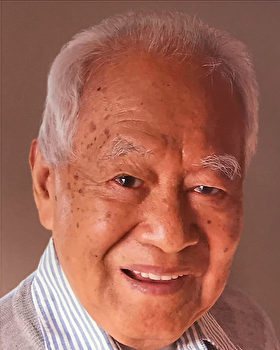
Sima Lu
Sima Lu (1919-2021) was an expert in CCP history. He joined the CCP at the age of 18, and worked in Yan'an and Chongqing, where he came into contact with a number of high-ranking figures in the Communist Party. In Yan’an, he was the library director of the Anti-Japanese Military and Political University and the director of Xinhua Daily’s Yan’an office. He was assigned by Chen Yun to engage in underground activities in Kuomintang-occupied areas, and was a CCP representative of the Korean Volunteer Corps. After witnessing the cruelty of the Party's internal struggle and the repeated blows he suffered within the Party, he left the party in 1943 and participated in pro-democracy activities, joining the China Democratic League, founding the magazine Free East, and organizing the Chinese People's Party; he left for Hong Kong in 1949 due to the persecution of the CCP, and founded the Chinese Free Writers Association, the Zilian News Agency, the <i>Outlook</i> magazine, and the Center for China Studies. He moved to the U.S. in 1983, where he founded the magazine <i>Exploration</i> and the Chinese Scholars Association.
He devoted himself to collecting and researching the history of the CCP, and wrote more than twenty books, including <i>Eighteen Years of Struggle, History of the CCP and Selected Literature, Qu Qiubai's Biography, Theory of China's Peaceful Evolution, Politics in Contemporary China, Dream of the Red Chamber and Political Characters</i>, and <i>Witnesses to the History of the CCP</i>.
Li Shenzhi
Li Shenzhi (August 15, 1923 - April 22, 2003) was a sociologist, media professional, and expert on international issues. From 1941 to 1945, Li studied at the Economics Department of Yenching University in Beijing, the Economics Department of St. John's University, and Yenching University in Chengdu, during which time he participated in a CCP secret organization. After graduation, he worked as a middle school teacher and magazine editor. In 1946, Li joined the *Xinhua Daily*, and later became an editor of the International Department of Xinhua News Agency. He joined CCP in November 1948, and became the head of the editorial team and deputy director of the International Department of Xinhua News Agency in 1949. From 1954 to 1957, he was the diplomatic secretary of then foreign minister Zhou Enlai. During the Anti-Rightist Campaign and the Cultural Revolution, Li was persecuted for advocating press freedom and democracy.
After being rehabilitated, Li returned to Beijing in 1973, where he worked for the International Issues Writing Group set up by CCP’s Central Committee. He accompanied then paramount leader Deng Xiaoping on his trip to the U.S. as an advisor in 1979, and later accompanied then premier Zhao Ziyang on his trip to the U.S. as an assistant in 1984. He was in charge of the establishment of the Institute of American Studies at the Chinese Academy of Social Sciences in 1980, served as director of the Institute from 1982 to 1988, and vice-president of the Academy from 1985 onwards. After the 1989 democracy movement, Li was disciplined for supporting the students, and he then resigned from his position. Li later dedicated himself to promoting liberalism, democracy and rule of law in China.
On April 22, 2003, Li died in Beijing due to illness.

